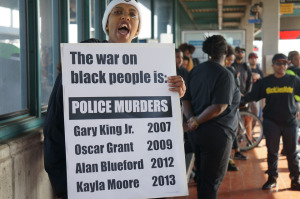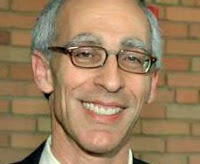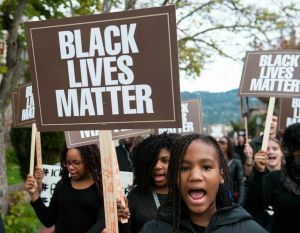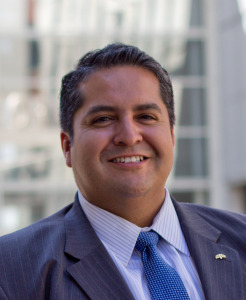Oakland City Leaders Pledge to Address Issues of Black Lives Matter Movement
Feb 1, 2015
Posted in Community, Economic Development, Education/Schools/Youth, Equal Rights/Equity, Ferguson/Black Lives Matter, Gentrification, Housing/Foreclosures, LGBT, Police-Public Safety, Reentry/Formerly Incarcerated, Responsive Government
By Ken Epstein
Many Oakland residents are saying that the City Council’s public hearing on critical issues that impact African Americans in Oakland is a good first step.
Held last Saturday in City Hall chambers, the packed five-and-a-half hour meeting did not result directly in policy proposals. But it did lay out a call for collective action by councilmembers and city staff on key concerns that a number of them are already working individually to address.

Council President Lynette Gibson McElhaney convened the special hearing on Saturday, Jan. 24, along with Council President Pro Tem Larry Reid.
In an email to community leaders, McElhaney discussed the significance of the hearing.
“The City Council had never undertaken a comprehensive examination of the issues that impact Black lives as we did this past Saturday,” she said.
“I want to let you know that thus far, we have received overwhelmingly positive feedback,” McElhaney continued. “Our primary audience – the council members and senior administration – felt that they received comprehensive information and a framework through which to direct their efforts.”
McElhaney said she considers this moment to be an unprecedented opportunity for Oakland to take the lead in dealing with these issues.
“To my knowledge, this was the first time that protesters for any cause were given a welcome mat to bring their grievances directly to the policymakers,” she said.” This is a considerable success for the activists who have sought redress for their grievances.”
Speaking at the hearing, Congresswoman Barbara Lee talked about legislation that Congress can potentially pass, calling on people in Oakland to help create the “street heat” that can make Congressional action a possibility.
“We’ve got to stop this (police violence). It’s time for this to change,” said Lee, calling attention to a bill before Congress that would make it more difficult for district attorneys to use “secret grand jury hearings” to exonerate police accused of killing civilians; and another bill that would stop giving military arms to police departments, “to keep the weapons of war off our streets.”
In an interview with the Oakland Post after the hearing, Councilmember Dan Kalb said he will be working with Alameda County officials to assure that state funds for reentry programs reach the formerly incarcerated for whom they are intended.
He also said he would work with the citywide police accountability coalition to develop a measure to create a civilian police oversight commission in Oakland, somewhat like what already exists in San Francisco and Los Angeles.
“I want to work on something (now) so that we will be ready to put a measure on the ballot (for the next election),” Kalb said. “I think other council members feel the same way.”

Councilmember-at-large Rebecca Kaplan said, “California continues to lead the world in prison spending and destroys lives, families and communities, without adequately funding real prevention and re-entry services.”
“(Therefore), we have work to do,” she said, calling for the city to adopt policies “to hire more Oakland residents and a more diverse group to our police force. We need to stop arresting and prosecuting people for minor nonsense and end the disparities in sentencing, and the costly war on drugs.”

In addition, she said, “We need to take seriously our job creation efforts and the non-profits who administer programs that create jobs, provide economic access and work force training. There’s been a long history in Oakland, and throughout the nation, of destroying black-owned business.”
Kaplan said the city should move ahead on conducting a “legally required disparity study, and take action to make sure local minority-owned businesses get a fair shot at contracts and jobs, and that we truly build a future that values Black lives.”
New Councilmember Abel Guillen said he will be looking at ways to address racial profiling in Oakland, “the disproportionate numbers of African Americans and Latinos who are stopped by police.”
disproportionate numbers of African Americans and Latinos who are stopped by police.”
In addition he said that as the city hires more police, “We have to make sure that those people that we hire are reflective of the local community.”
The council’s discussion of the issues and proposals for council action will continue at the Feb. 3 City Council meeting.

Next Week, Part II, City Leaders Respond to Issues of Black Lives Matter Movement